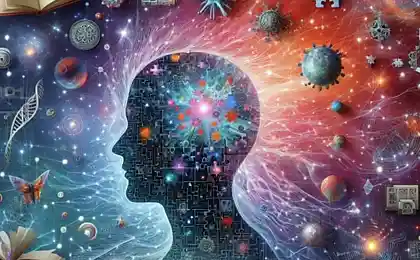151
Introversion: Your nature, not the problem
It’s time to break down stereotypes about what it means to be an introvert in today’s world.

89%
Introverts consider themselves strange or introverted.
In a world where loudness is often confused with confidence and silence is perceived as weakness, introverts become unwitting victims of social stereotypes. But what if all this time we have misunderstood introversion?
The myth of introversion’s “wrongness”
Modern society is built on extroverted values. Openness, activity, constant communication are extolled as an ideal, and introversion is often perceived as a flaw that needs to be corrected. Studies show that about 25-40% of the population are introverts, but many live by trying to meet extroverted standards.
The psychologist Carl Jung, who first described personality types, never said that one type is better than another. He just described different ways of interacting with the world. Introverts draw energy from the inner world, while extroverts draw energy from external stimuli.
The scientific truth about introversion
Neurobiological studies show that the brain of introverts is functionally different from that of extroverts. Introverts have a more active parasympathetic nervous system, responsible for reflection and deep thinking. This explains their penchant for analysis, thoughtfulness, and need for silence to recover.
Depth as a superpower

What society often refers to as “insularity” is actually a capacity for deep analysis and meaningful interaction with the world. Introverts don’t avoid communication; they choose quality over quantity.
A study conducted at the University of California found that introverts perform better on tasks that require long-term concentration and deep analysis. They also show greater empathy and an ability to understand other people’s emotions.
How to Accept Your Introverted Nature
Rethink your needs
Your need for solitude isn’t about avoiding people, it’s about restoring energy. Plan your time as part of your daily routine.
Develop your strengths.
Introverts often have excellent listening, deep analysis, and creative thinking skills. Use these skills in your professional life.
Set boundaries.
Don’t be afraid to say no to activities that drain you. Your time and energy are valuable and you have the right to protect them.
Find your own people.
Look for like-minded people who appreciate deep conversations and understand your nature. The quality of the connections is more important than the number.
Successful communication strategies for introverts
Introversion does not mean social disability. Many successful leaders, from Bill Gates to Mark Zuckerberg, are introverts. The key is to find your communication style and create comfortable conditions for interaction.
Practical communication techniques
Preparing for important conversations: Introverts do better when they have time to think about a topic in advance. Feel free to ask for a meeting agenda in advance.
Use written communication: Email, messengers and other written formats allow you to formulate your thoughts more accurately.
Create a comfortable environment: Offer meetings in quiet places where you can focus on the conversation.

Dispelling myths about introversion
Myth 1: Introverts don't like people.
Reality: Introverts can be very sociable, but prefer deep, meaningful relationships to superficial dating.
Myth 2: Introverts are bad leaders.
Reality: Research shows that introvert leaders are often more effective at working with proactive teams due to their listening skills and thoughtful approach to decisions.
Myth 3: Introversion is the same as shyness.
Reality: Shyness is a fear of social judgment, and introversion is a preference for less stimulating environments.
Introversion is not a sentence to social isolation, but a gift of deep understanding of yourself and the world around you. In an age of superficial communication and information noise, the ability to think deeply is becoming increasingly valuable.
Creating an Introvert Friendship Environment
If you are an introvert, it is important to create an environment that supports your nature. This applies to both the home space and the workplace.
Living space development
Create a privacy zone.
Set up a place where you can be alone, read, think or engage in hobbies. This is your recharging station.
Minimize distractions
Reduce the number of notifications, create a system of organizing information so as not to overload your brain.
Plan social activities
Instead of spontaneous meetings, plan social activities in advance, leaving time for recovery before and after.
Conclusion: Your strength is in your nature
The world needs introverts. In an age where everyone talks but few listen, your ability to listen deeply and analyze is invaluable. When everyone is in a hurry to act, your thoughtfulness can prevent many mistakes. When everyone strives for broad but superficial connections, your capacity for deep relationships creates real intimacy.
Stop apologizing for who you are. Your introversion is not a flaw to be compensated for, but a unique strength to be developed and valued.
Glossary
Introversion is a personality type characterized by a focus on the inner world, a tendency to reflect and the need for solitude to restore energy.
Extroversion is a type of personality characterized by focus on the outside world, activity in communication and obtaining energy from interaction with others.
The parasympathetic nervous system is a part of the autonomic nervous system responsible for the processes of restoration, relaxation and energy conservation.
Empathy is the ability to understand and share other people’s emotional experiences.
Reflection is the process of introspection, thinking about your own thoughts, feelings and actions.
How to use NLP for manipulation. We study so we don't get caught.
Forgotten brother of Pushkin: Afanasy Sergeevich and the mystery of his disappearance























